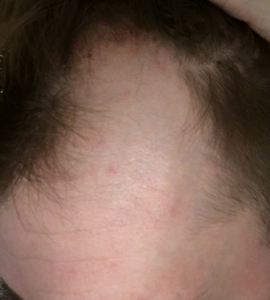My comments and opinions are really just meant to stand on their own merits or lack thereof. But I can share that I have had close visibility into what research the PFS Foundation has been doing over the past several years. Even once there is an important finding, it can take years before it makes it into the public eye. I wish things moved more quickly, but this is just the reality of research and the media. Just as an example, the legal documents that served as the basis for the Reuters story were (accidentally) filed publicly on the court docket in mid-2016, but it took over 3 years to make it into the mainstream media. The FDA has known about these issues since 2017 from the PFS Foundation’s Citizen Petition, but the FDA has done nothing yet. I hope the media will pick up on this but we will have to see.
The PFS Foundation has accomplished a few things so far:
Their research has established biomarkers in PFS patients. This shows that PFS is a physical condition rather than psychosomatic, as many people have argued for years. The studies looked at small groups of PFS patients and found two very important things. Compared to controls, PFS patients had undetectable (depleted) levels of neurosteroids in their CSF. Additonally, about 50% of PFS patients appear to have their 5AR2 gene silence. It would be great to have these studies done in much larger populations, but it is very hard to recruit PFS patients due to financial and logistical constraints when it is a rare disease. That doesn’t invalidate the findings of these studies of the existence of the disease itself.
Another Northwestern based study was a very high powered epidemiological study that showed about 1% of patients who took 5-AR inhibitors (finasteride and dutasteride) developed persistent erectile dysfunction. This was controlled in many ways using very sophisticated statistical techniques. Even at 1%, this is a low frequency risk but terribly significant if it occurs.
Lastly, a few years ago there was an article published in JAMA Dermatology that critiqued every one of the clinical trials to date that were published on finasteride. The main critique was that they were simply not effectively designed to sensitize for low frequency, persistent side effects. This article seems prescient now because Merck didn’t report the patients who dropped out of their study and there were apparently PFS patients within this group. This does not seem to have been an accident in retrospect in light of the documents that are now available.
Merck has acted unethically throughout this whole controversy. I can share with you a couple anecdotes with you.
Although I can’t specifically provide names, Merck has interfered with the research publishing process. Somebody from company reached out to at least one journal editor who published an unfavorable study on finasteride. Merck pressured them to withhold support to the journal if the editor did it again.
Personally, I had a physician reach out to Merck about a decade ago to figure out what was going on with my health. The physician spoke with a pharmacovigilance contact, but I don’t remember the name it was so long again. The person said Merck had never received any reports of sexual dysfunction. This was clearly false because of the data that was hidden from the clinical trials. Additionally, at that time Merck had already been forced to warn of such side effects in European countries. And this was shortly before the FDA forced a label change in 2012 to include post-marketing reports, all of which happened before my outreach to Merck.
These are all things I know factually to be true but I can’t provide “proof” until it gets into the public domain. I hope it gets there, but it may never be the case. But if you look at Merck’s response to Vioxx, they did many of the same things I just described for their response to the Propecia scandal.

